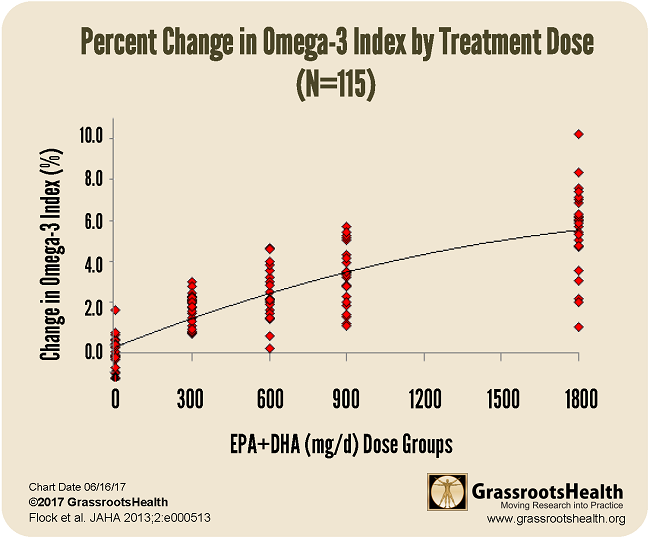Published on March 20, 2018
A new study with the Framingham Heart Study Offspring Cohort found that people with the highest Omega-3 Index levels had a lower risk of overall mortality compared to those with the lowest levels. In addition, higher Omega-3 Index was significantly associated with lower risk in 4 out of 5 health outcomes, including any mortality, while total cholesterol was not associated with risk for any of the outcomes.
Who was included in the study?
This study included 2500 participants in the Framingham Heart Study Offspring Cohort. Participants with a history of cardiovascular disease (CVD) were not included in this study, nor were those with missing measurements for red blood cell fatty acids.
There were more females (57%) than males (43%) and the average age was 66 years.
Over the follow up period (median 7.3 years) there were 350 deaths and 245 CVD events.
Cardiovascular events and mortality
After adjusting for factors including sex, age, BMI, smoking status, and alcohol consumption, there was a significant trend toward lower total CVD, total coronary heart disease (CHD), and total stroke with higher Omega-3 Index.
The researchers looked at how both Omega-3 Index and total cholesterol were associated with total CVD, total CHD, total stroke, CVD mortality, and any mortality, and found Omega-3 Index to be a better indicator of health. Omega-3 Index was significantly associated with all but CVD mortality, with total mortality 35% lower in those in the highest Omega-3 Index group (>6.8%) compared to the lowest (<4.2%). Total cholesterol was not associated with risk for any of the 5 outcomes.
While the measurement of the omega-3 fatty acids was done only once and changes may have occurred over the follow up period, these findings provide further support for the use of Omega-3 Index screening for health.
From a dose-response study by Flock et al., it is estimated that to raise one’s Omega-3 Index from 3.7%, the median of the lowest group, to 7.8%, the median of the highest, an individual would need an additional 1300 mg of EPA + DHA each day.

Resources
Erythrocyte long-chain omega-3 fatty acid levels are inversely associated with mortality and with incident cardiovascular disease: The Framingham Heart Study
Harris et al.
Journal of Clinical Lipidology
February 2018 (online)
Read Paper
Determinants of Erythrocyte Omega‐3 Fatty Acid Content in Response to Fish Oil Supplementation: A Dose–Response Randomized Controlled Trial
Flock et al.
Journal of the American Heart Association
December 2013
Read Paper

